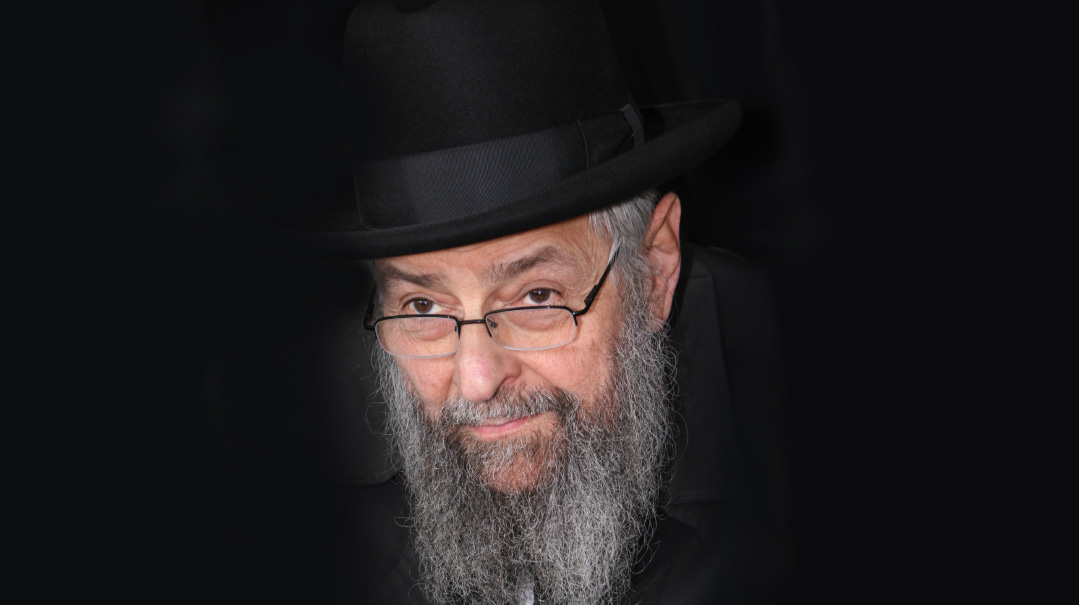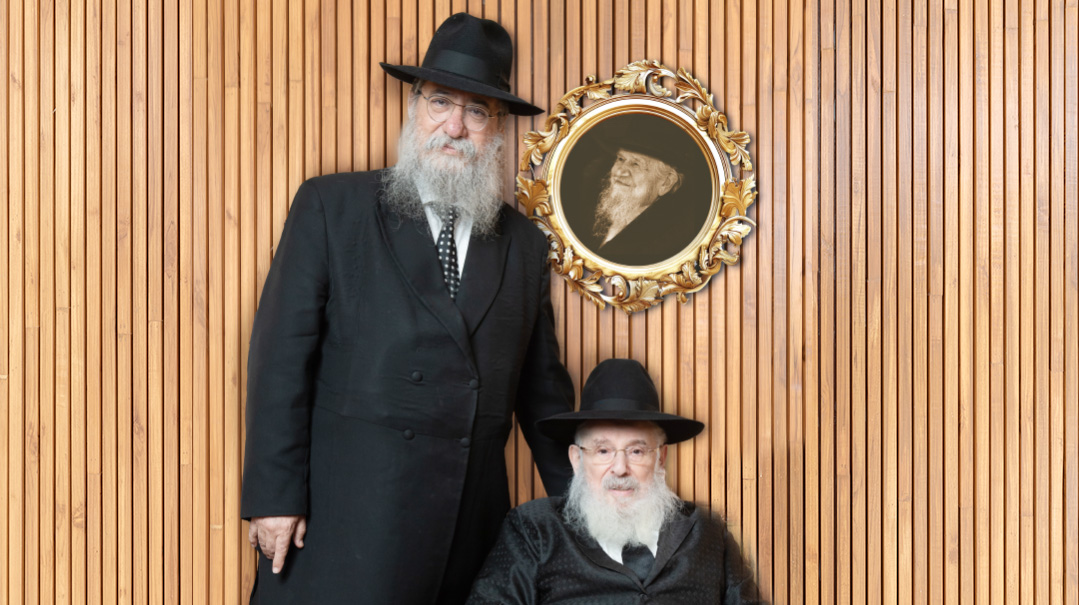Vacation Education
| June 20, 2023Why are parents comfortable sending their kids to camps whose kitchens have no formal kashrus supervision?

Sneakers? Check.
Laundry bag? Check.
Toothpaste, bathing suit, and plenty of snacks? Check, check, check.
It seems it wasn’t that long ago when your son or daughter was busy taking tests in school, while you were doing homework of your own, researching sleepaway camps to find one with the right environment, facilities and crowd for your child to thrive. But even as the coach bus pulls away from the curb, full of children excited to spend a few weeks getting away from it all, there’s one reality from which there can be no vacation — living within the confines of halachah.
It goes without saying that parents are going to do their due diligence before making their final decision on which summer camps’ hashkafos and practices align with their own. But even with an on-site rav to ensure that ruchniyus remains priority number one, the camping experience does pose certain halachic challenges. While obvious issues are dealt with head on, one can’t help but wonder — are there others that are being accidentally overlooked, and, if so, how can those oversights be corrected?
Keeping It Kosher
Rabbi Sholem Fishbane, kashrus administrator for the Chicago Rabbinical Council and the executive director of the Association of Kashrus Organizations (AKO), an umbrella of major kashrus agencies collaborating on shared issues, is well versed in the inherent pitfalls of large-scale kitchens. He’s mystified by the notion that people are comfortable sending their kids to camps whose kitchens have no formal kashrus supervision, even though they themselves would never even dream of eating in a restaurant without a hechsher. Based on his firsthand experiences, Rabbi Fishbane estimates that nearly 90 percent of summer camp kitchens are in need of improvement when it comes to kashrus.
The potential deficiencies that can occur in both camp and yeshivah kitchens have been a topic of discussion for some time within the kashrus industry, but was propelled to the fore last year when two kashrus professionals who had signed their daughters up for camp inquired about the kashrus situation and were dissatisfied with the responses they received. When the issue surfaced again at the Spring 2022 AKO convention, the participants decided it was time to take concrete action to address this issue. They decided to focus first on camp kitchens; the fact that they operate only two months out of the year and cook the meals on-site made them a more manageable starting point within a much larger issue.
The Camp Kashrus Initiative, a project of the AKO, launched in June 2022, jointly headed by Rabbi Sholom Tendler, kashrus administrator of the Star-K, and Rabbi Moshe Kaufman, kashrus administrator of KVH Kosher. The initiative’s aim is to address kitchen challenges that can be found in camps, with guidance and assistance just an email away.
Calling in the Experts
The Camp Kashrus Initiative features kashrus professionals and rabbis, all of whom offer their time and experience as unpaid volunteers, to identify problematic areas and give recommendations as needed. Last summer 12 camps took advantage of this free service, and the AKO is hoping the number will double this year.
“This isn’t a moneymaker,” says Rabbi Fishbane. “We just want to make sure that our kids are eating kosher, and we have experts who are willing to give up their time in the summer to visit camps and give directors pointers on what they need to do and things to be aware of.”
Camp directors were notified that rabbinical experts are available to assess their on-site kashrus protocols and procedures with a ten-point checklist addressing numerous issues. While the Camp Kashrus Initiative does not provide camps with an official certificate of hechsher, it plans to post a list of camps that have been reviewed on its website, giving parents confidence that their children are in a place that takes its kashrus seriously.
Fill in the Gaps
Rabbi Sholom Tendler is all too familiar with the things that can go wrong in a camp kitchen, even in camps that are meticulous about buying food that meets the most stringent standards. Rabbi Tendler knows of cases where non-Jews have keys to the kitchen, times when non-kosher chicken and cheese were accidentally delivered to a camp, and campers staging Friday-night cholent raids without understanding the halachic nuances of their culinary adventures.
“No one means to do anything wrong, and we assume that we are working with erliche people who want to do the right thing, but the people running camp kitchens need the knowledge to fill that gap,” says Rabbi Tendler. “You know how many mistakes you can make in your own kitchen. Having milchig, fleishig, and pareve all running out of the same kitchen, without anyone being on top of things to make sure that things stay separated, can cause problems.”
“You can have good ingredients and still have problems,” agrees Rabbi Fishbane. “People make the mistake of thinking that if they buy chalav Yisrael, heimish products and Bodek, then everything is fine. But over the years we’ve seen that food service is the hardest part of kashrus. And in the case of camps, you have a full-fledged kitchen putting out hundreds of meals a day, but there is no one in that kitchen with kashrus experience. Our goal is to teach the ‘systems of kashrus,’ which is the critical step once the mehadrin ingredients have been ordered.”
Some camps have assured Rabbi Tendler that their chef is shomer Torah u’mitzvos, expressing their confidence that that is enough to ensure their kitchen’s kashrus. He finds that response to be far from sufficient, though, for exactly the same reason the Star-K requires caterers to hire a mashgiach for their events. While having an actual mashgiach would be ideal, in the absence of that, camps need to designate and train someone to oversee the kashrus of their kitchens.
“A caterer is too busy to pay attention to the nitty-gritty details,” explains Rabbi Tendler. “We’ve seen some camps where there was a staff member whose job was to be the mashgiach, to turn on fires and check deliveries, but they didn’t need to be there 24/7. You can bet that when the non-Jewish kitchen staff were making eggs in the morning and the fire went out, that they didn’t call someone to turn the fire back on for them.”
Chain of Command
A deliberately designed hierarchy is an important issue in ensuring a kitchen’s kashrus. “Who is in charge of kashrus and is designated to make sure kashrus is being paid attention to?” explains Rabbi Tendler. “[The kitchen] can’t just be a place where everyone assumes that ‘someone’ is taking care of this, which, by the way, is way too common.”
The Camp Kashrus Initiative’s rabbanim also focus on staff awareness of what “being kosher” actually means, such as identifying who has keys and/or access to the kitchen and food storage areas, who checks every food item delivered, and who turns on the kitchen’s fires.
An Ounce of Prevention
The initiative’s cochairman, Rabbi Moshe Kaufman, believes strongly that education and planning are key to solving many kitchen problems. As an example, he references the commercial convection ovens that can be found in many camp kitchens. Some are equipped with switches that turn the oven off every time the door is opened as a safety measure, with the oven turning back on again when the door is closed.
This feature can potentially lead to hilchos Shabbos violations and bishul akum, Rabbi Kaufman notes. And while it can be easily bypassed, he says, the average kitchen worker probably isn’t aware of its existence in the first place.
Staying Separate
Making sure that kitchen equipment is properly designated, so that it is clear at a glance if something is meat, dairy, or pareve, is another area where camp kitchens can sometimes fall short.
“A sheet pan is a sheet pan, and there can be occasional mix-ups even in a properly maintained place, something every consumer can understand, because it happens in our own kitchens,” says Rabbi Kaufman. “We recommend marking items with high heat engine paint, but even that can get scratched off or washed off, and you have to stay on top of it.”
Other areas of concern that the initiative’s experts identify include making sure that camp kitchens have clearly designated meat and dairy refrigerator space; cooking areas and dishes; proper dishwashing and storage space so that kitchen items don’t accidentally get placed in the wrong area; and separate milchig and fleishig sets of commonly used items such as spices, so that accumulated residues don’t cross over from one side of the kitchen to the other.
Canteen Scene
While the vast majority of the food being served in a summer camp comes out of the kitchen, there is another location where kashrus can be a serious issue — the canteen. Gone are the days where kids ran to the canteen to buy potato chips, Twizzlers, or ices with their pocket change. Today’s canteens are mini restaurants, serving up hot pastrami sandwiches, French fries, and pizza out of a very small space, where keeping meat and dairy apart can be difficult.
The list of canteen-related problems that Rabbi Tendler has seen for himself or has heard about from his colleagues is the stuff that make up kashrus professionals’ worst nightmares. In addition to non-Jewish workers turning on fires, and oil from a meat grill and fryer spattering onto a nearby cheese-topped pizza, camp canteen staff have been found heating uncovered meat and dairy items in the same microwave, and accidentally selling non-kosher items, among numerous other problems.
“Maybe someone in the canteen once picked up a Shulchan Aruch,” said Rabbi Fishbane. “But the fact that there is a teenager who has yet to master hilchos kashrus running a canteen is pretty scary from a kashrus perspective.
Potential Pitfalls
Finally, the Camp Kashrus Initiative’s rabbanim pay close attention to the protocols of hilchos Shabbos, with particular focus on areas such as amirah l’akum (asking a non-Jew to perform melachah) and chazarah (returning food to a source of heat).
Shabbos presents a long, complex list of issues that can come up in a kitchen, making it all the more important to train kitchen staff in proper operating procedures, particularly those who aren’t shomrei Torah u’mitzvos.
Systems must be put in place to ensure that everything is done properly, particularly if items will be taken off and then put back on a fire, says Rabbi Kaufman.
When a camp isn’t properly prepared to address kashrus issues, all sorts of things can happen. Rabbi Kaufman knows of situations where non-Jewish workers have turned on electric steam tables on Shabbos; camps that have rented out their facilities during offseason for non-kosher-certified programs and events; and camps that have purchased specialized steam kettles secondhand, failing to realize that their very design renders them impossible to kasher satisfactorily.
“Very often we’ve found simple oversights [that came about] because people aren’t paying attention,” says Rabbi Kaufman. “If you aren’t looking for something, you won’t see it. It’s so important for camp to have a plan for kashrus instead of just deciding to wing it.”
Rabbi Kaufman acknowledges that it can be frustrating for camps to discover problems in their kitchens, but he believes that most want to have a proper kashrus protocol in place. As an example, he cites an early June visit to one facility outside of New York. The inspection turned up certain issues, but the camp was receptive to making the necessary changes.
“I met with the owner and director who both were enthusiastic and committed to a proper outcome,” says Rabbi Kaufman. —
Setting Boundaries
Of course, kashrus isn’t the only halachic issue that can arise in a camp setting.
Take the eiruv, for example. While of course your kid’s camp has an eiruv, whether or not that eiruv is actually kosher at any given time can be a completely different story.
Exposed as they are to the heavy winds, rain, and falling tree limbs, it should come as no surprise that an eiruv that was in perfect condition when everyone packed up and headed home at the end of August may not still be kosher by the time camp starts the following June. Routine tree growth can wreak havoc on an eiruv, while fences or gates that are part of an eiruv’s structure may have been damaged or even moved by maintenance staff at any point in time during the offseason. Consequently, it’s crucial for a rav who is well versed in the proper halachos to confirm that the entire eiruv is kosher before the summer starts.
And even the most meticulously constructed eiruv needs constant maintenance. Simply having a camp maintenance person give the eiruv a pre-Shabbos check is inadequate unless they are well versed in the related halachos.
An 11th grade rebbe at Yeshiva Zichron Meir in Mountaindale, Rabbi Avraham Goldberger has been in charge of checking the eiruv in his hometown of South Fallsburg since 2005, and he specializes in Catskills eiruvim. One common problem that he sees in camps are eiruvim that utilize bunkhouses built on stilts as part of their structure.
“In order to be usable, the bottom portion of a bunkhouse has to be touching the ground, or within three tefachim, approximately nine to eleven inches off the ground,” explains Rabbi Goldberger. “On raised bunkhouses, you have to cover up that opening somehow, but since plumbers often need access to the bottom of the bunkhouse, you want something that isn’t too permanent, such as lattice or string, which can be removed and then put back.”
Rabbi Goldberger encountered that very issue when he was called upon to expand the eiruv in Camp Nageela to encompass the baseball field. While clearly there were no baseball games played on Shabbos, girls often went there on Shabbos, their siddurim in hand.
“The eiruv came to one side of the dugout, which had a roof and three walls that didn’t go all the way down to the ground,” recalls Rabbi Goldberger. “That was an issue for the eiruv since there was a break of more than ten amos.”
Upgrading a camp’s facilities can sometimes necessitate changes to the eiruv as well. When Camp Romimu added two new baseball fields in the area where the eiruv had been previously built, the eiruv had to be moved, as it was running between home plate and second base.
He adds that it goes without saying that using the eiruv for other purposes definitely isn’t a good idea. “I was checking the eiruv once behind a bungalow in a camp in New Jersey, and I saw that the campers were hanging their bathing suits on the eiruv,” Rabbi Goldberger says. “If the eiruv sags, that’s a problem.”
Constructing an eiruv involves a lot more than just nailing up two by fours and connecting them with a string, he explains. Rabbi Goldberger favors 130-pound fishing line for his eiruvim. At 1.2 millimeters thick, it does have some stretch, which he eliminates by using ratchet straps to tighten the line, so that it remains taut and completely straight as required by halachah.
On occasions when Rabbi Goldberger has elicited non-Jewish maintenance workers to help him take down the eiruv and then put it back up, he hears quite often from his helpers that they don’t have enough fishing line to work with, simply because they don’t realize just how tightly they have to pull the string.
“They say to me all the time, ‘Rabbi this is too short — how did you do that?’” Rabbi Goldberger shares.
Rabbi Goldberger isn’t a fan of having non-Jews putting up an actual eiruv on their own, noting that they typically run the string too loosely and don’t realize that the string has to go on top of the lechi — the sidepost of the eiruv, which holds up the string — and not on its side.
“Many times, when the eiruv is very high up, I’ve seen non-Jewish workers putting a screw for the string on the side of the lechi, about 12 inches from the top, not realizing that that invalidates the eiruv,” says Rabbi Goldberger.
No Vacation from Halachah
A Time to Mourn
Aside from keeping several hundred children well fed, camp staff also have to keep them gainfully occupied, which becomes that much more daunting come Rosh Chodesh Av. With swimming off the activity chart, camps scramble to find other ways to keep the troops entertained.
“They all want to go boating and rafting during the Nine Days, but we don’t allow that,” says Rabbi Daniel Neustadt, who has served as the rav in Camp Achim for over 20 years. “We don’t allow them to do anything really dangerous, and while we might take the kids bowling, major trips are a definite no.”
Camps are given some degree of leeway when it comes to the restrictions of the Nine Days in order to be able to care for so many campers, says Rabbi Avrohom Neuberger, who serves as the rav in Camp Bnos Naaleh. Still, he adds, on another level they gain so much.
“Even though camps can be somewhat more lenient on the halachos during the Nine Days, the overall messaging in camps is much stronger during the Three Weeks and the Nine Days, and campers really feel the Churban,” he says. “Camp is a much more immersive experience on a real level, and for many people, unless you go to a Chofetz Chaim Heritage Foundation video on Tishah B’Av, you really don’t feel the Churban as much when you stay home.”
While there always seems to be an explosion of siyumim during the Nine Days, allowing participants to enjoy a celebratory meat meal, Rav Moshe Feinstein frowned upon the practice of timing the end of a masechta specifically to fall out during that time. Still, the situation is different in camps for a variety of reasons, says Rabbi Neuberger, including the difficulty of preparing dairy meals day after day for what can be a very significant number of people during the Nine Days. While bathing for pleasure is verboten during the Nine Days, many poskim have ruled over the years that showering for hygienic reasons is permitted, although campers should be encouraged to keep water temperatures at less-than-optimal levels.
Music is another issue that comes up in camp during the Nine Days, and while there are those who hold that sad, contemplative music is permissible, since it doesn’t inspire listeners to dance, the generally accepted practice in camps is to avoid music altogether. The a cappella music that has gained in popularity in recent years presents certain halachic difficulties. Rav Yisrael Belsky ztz”l discouraged listening to music where human voices are manipulated to mimic musical instruments, even in summer camps.
Music to My Ears
Between bunk songs, night activity songs, exercise songs and breakout songs of every kind imaginable, men in camp invariably need to be careful about kol ishah.
“Camps try to avoid the problem as much as possible,” notes Rabbi Neuberger. “The families eat in a separate dining room, and while there can be some cheering going on during Shabbos meals, they typically wait to sing until after the families are done with their meals.”
While even under those circumstances, it’s still possible to hear the campers singing from a distance, given the fact that it’s impossible to distinguish individuals from the group, it’s generally not considered a problem.
Rabbi Neuberger explains that there is no issue with kol ishah when it comes to non-Jewish men listening to women singing, so practicing a choir solo in the dining room while a maintenance worker mops the floor doesn’t present a problem.
Dressing the Part
Boys who are accustomed to wearing dress shirts and long pants during the year often revel at the opportunity to don shorts and T-shirts in camp. While that may be appropriate attire for softball or arts and crafts, it definitely crosses the line for davening, says Rabbi Neuberger, who acknowledges that it can be a tricky matter in more modern camps.
“The basic structure of tefillah is that you have to imagine yourself standing and talking to Hashem, which you are,” explains Rabbi Neuberger. “While it’s easier to be mechanech kids in a more relaxed setting, where things are taught more by osmosis instead of top-down learning, boys wearing shorts to davening is a real chinuch issue. This is the perfect opportunity to address the concept that you can’t daven if you aren’t dressed properly.”
Camps should have a set dress code for davening, says Rabbi Neustadt. In Camp Achim, shorts and Crocs are not allowed during tefillah, and boys over bar mitzvah are required to wear white shirts, hats and jackets for davening. And wearing tzitzis, even when playing ball, is non-negotiable.
“A lot of kids don’t want to wear tzitzis during sports, because they can get in the way when they’re driving to the basket and in other situations,” says Rabbi Neustadt. “But it’s important to set standards and insist that they be upheld.”
The Camp Kashrus Initiative can be contacted via Mishpacha.
(Originally featured in Mishpacha, Issue 966)
Oops! We could not locate your form.







